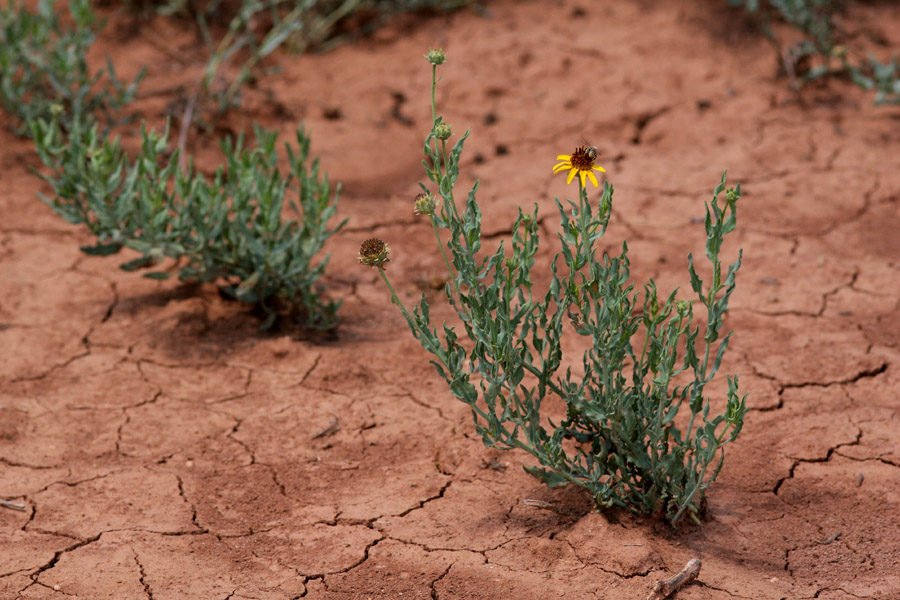Texas Blueweed

Texas Blueweed
(Helianthus ciliaris)
Priority: - Prevent / EDRR
Tags: Agricultural
Identification and Reproduction
Identification:
- Texas blueweed is a species of sunflower that grows from creeping rhizomes.
- Stems extend upright and range between 40 to 70 cm tall.
- Can appear clumpy, as numerous shoots will arise from the underground rhizomes.
- Leaves and stems are blue-green to grey-green in colour and narrowly lance-shaped.
- Leaves attach directly to the stem, have wavy margins and stiff hairs.
- Blooms occur from June through October. Flowers are 2-4 cm wide, have yellow ray florets and reddish disk florets.
Reproduction:
- Texas blueweed can spread through rhizome fragments and seed production.
- Often rhizomes are fragmented and transported by agricultural machinery.
- Seed germination is slow and regarded as insignificant in local spread.
Habitat & Ecology
- It grows rapidly on recently disturbed sites, cultivated lands, ditches and roadsides.
- It has the most invasive characteristics on cultivated lands and does not appear to invade natural environments.
- Currently absent from Canada but distributed throughout the the southwest of US as it is native to Texas and Mexico.
Impacts
Social:
- It is aggressive, forming extensive colonies where possible.
- Crop yields and qualities are reduced.
- Contaminates seed crops.
Management
Prevention is a high priority for this plant.
- Use clean, high-quality seed mixtures that are certified.
- Ensure that equipment, vehicles and tools are clean and free of debris.
- Continously monitor cultivated sites for new infestations.
- Planting of perennial grasses can prevent Texas blueweed establishment.
- Report this plant if you think you have seen it.
Resources
For more for details check out the Invasive Species Compendium datasheet on Helianthus ciliaris (Texas blueweed).
Header photo (J L Johnson).




